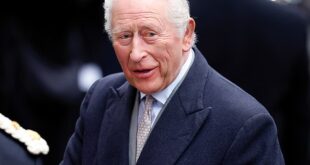Royal Mail (RMG.L) said on Thursday it will add unique barcodes to its second class stamps as part of a modernisation drive to improve customer service.
The pilot will see the barcodes appear on around 20 million stamps supplied to UK businesses through retailer Viking Direct and through Royal Mail online channels.
The barcodes will ensure that the stamps in question can be uniquely identified. They will sit alongside the main body of the stamp, separated by a simulated perforation line and will be colour matched with the stamp.
Nick Landon, chief commercial officer, said the initiative will see Royal Mail become one of the first postal authorities in the world to add unique barcodes to stamps.
“By doing this, we are looking to transform the humble stamp so that we can offer our customers even more convenient, new services in the future. The pilot of barcoded stamps reflects our commitment to constantly evolve our products and services in line with the ever-changing needs of our customers,” he said.
In December, Royal Mail joined forces with a consortium of established UK drone companies, including DronePrep and Skyports, to become the first nationwide UK parcel carrier to transport a parcel via an unmanned aerial vehicle to a remote lighthouse on the Isle of Mull.
Royal Mail earlier said it was introducing Sunday parcel delivery service for major retailers as consumers increasingly turn to online shopping amid coronavirus restrictions and there is a surge in demand “for more frequent and more convenient deliveries.”
WATCH: How to prevent getting into debt
READ MORE: Royal Mail to trial Sunday parcel delivery service amid online shopping boom
In the last year, Royal Mail said it has processed “unprecedented parcel volumes,” delivering 496 million parcels in the third quarter ending 27 December 2020.
It has also recently said profits are likely to be higher than previously expected. Revenues are now set to be £900m (£1.3bn) higher than last year – at around £8.6bn – and, for the entire group, adjusted operating profits will hit around £700m, compared with £325m a year ago.
The cost of a major restructuring is also expected to come in below expectations, costing around £90m instead of an original estimate of £140m.
The company has also said it will retain around 10,000 of the 33,000 temporary workers who helped out over the festive period.
WATCH: When should I start paying into a pension?
Source link



